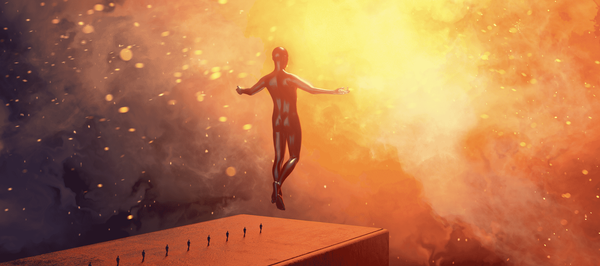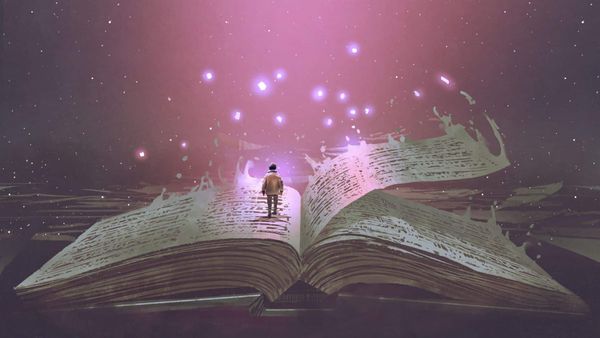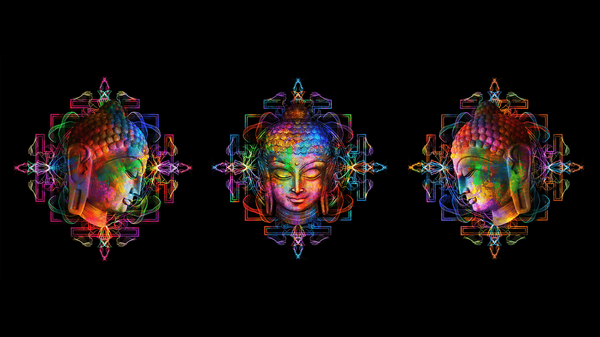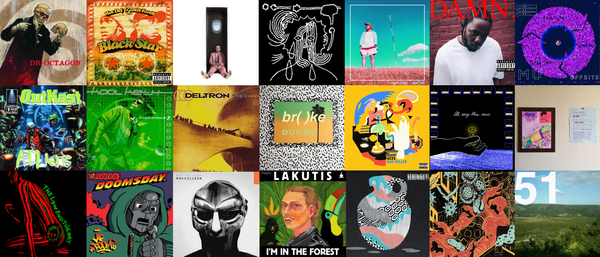Jordan Bates • • 7 min read
Paperback Nirvana: 4 Books That Are Like Talking to God
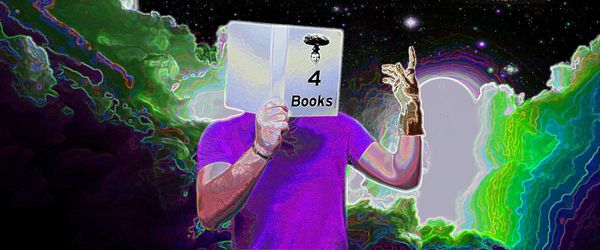
Have you ever noticed that some books possess a certain heavenly quality?
It’s a kind of purity: a too-perfect-for-life-ness that gives the impression that the writer has actually mainlined the unadulterated secrets of the universe and spelled them out in human language.
Such books give one a feeling that the author has merely served as a conduit—that they have acted as a human harp, allowing something vast and limitless to pluck the strings.
Every word in such books rings true to the heart, even if one’s intellect recoils at the idea of absolute truth.
Every sentence seems like it came from the gods, even if one doesn’t necessarily believe in divinity.
Such books are the proverbial family jewels of human history—keystones to tremendous wisdom that transcends any one culture or time period.
That is why we owe it to ourselves to read them—to bask in their vision, allowing it to soak into our minds and hearts, liberating us from shackles we could not see and illuminating new vistas of existence we did not know to explore.
1. The Prophet — Kahlil Gibran
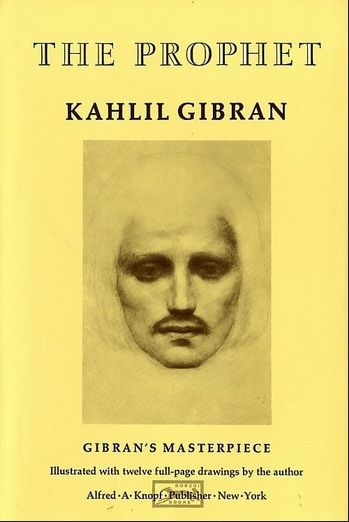
Having read this book twice already, I am convinced that I will return to it for the rest of my life.
Published in 1923, The Prophet contains 26 prose poetry essays written by the Lebanese philosopher and poet, Kahlil Gibran.
Though popularity is sometimes not a suitable metric by which to gauge the value of books, it should be noted that The Prophet has been translated into over 40 languages, sold tens of millions of copies, and has made Gibran the third-best-selling poet of all time, behind Shakespeare and Lao Tzu.
The mass appeal of The Prophet is a testament to the universality of its themes—its capacity to slice through surface-level differences of nationality, religion, race, gender, and age to get at the core of the human experience. Another factor is that it presents a non-dogmatic and non-judgmental vision of life. It espouses no ‘Thou Shalts,’ and it doesn’t denounce anyone.
What it does is state, in exceptionally clear, beautifully poetic language, the philosophy of a man who was clearly deeply in touch with something—something arguably magical and eternal—though I’ll leave it to you determine what that something is.
At the very least, it was one man’s deepest, hard-won personal truth.
The book dispenses healing wisdom on everything from love and freedom, to crime and punishment, to houses and work, to clothes and laws—topics relevant to most every human in history.
Its timeless passages—passages that turn conventional wisdom on its head, opening up new ways of seeing and understanding—make it an indispensable feast for the soul (however you define that word). Immerse yourself in this passage on romantic love for a glimpse of The Prophet’s majesty:
“Let there be spaces in your togetherness, And let the winds of the heavens dance between you. Love one another but make not a bond of love: Let it rather be a moving sea between the shores of your souls. Fill each other’s cup but drink not from one cup. Give one another of your bread but eat not from the same loaf. Sing and dance together and be joyous, but let each one of you be alone, Even as the strings of a lute are alone though they quiver with the same music. Give your hearts, but not into each other’s keeping. For only the hand of Life can contain your hearts. And stand together, yet not too near together: For the pillars of the temple stand apart, And the oak tree and the cypress grow not in each other’s shadow.”
2. Letters to a Young Poet — Rainer Maria Rilke
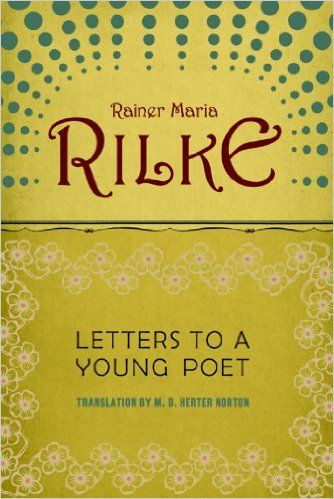
For me, Letters to a Young Poet was one of those books that seems to come to you at precisely the time you most need it.
I read it when I had first moved to South Korea and was going through a period of loneliness and uncertainty. It offered me new ways of understanding my solitude and my questions, challenging me to embrace them as unavoidable aspects of life.
Its author, Rainer Maria Rilke, was a renowned Bohemian-Austrian poet who passed away in 1926. Between 1903 and 1908, Rilke penned a series of responses to a would-be writer, offering advice on being an artist and a sensitive individual in an often cruel and unforgiving world.
As with The Prophet, reading Letters to a Young Poet gives me the sense that this was a man who was channeling the eternal wisdom of the cosmos into a language humans could understand. And that’s coming from someone who doesn’t really say things like “the eternal wisdom of the cosmos.”
There are just so many passages in this book of the sort that make you stop reading, widen your eyes, and stare off into the distance as you soak in the impact of the words on your life.
It’s like Rilke is talking to you. I really feel that everyone—especially anyone involved in a creative endeavor—would be enriched by this book.
Read the following passage slowly, and really taste it. It’s one of the passages that I found exquisitely insightful and liberating during my “dark night of the soul” in South Korea:
“You are so young, so much before all beginning, and I would like to beg you, dear Sir, as well as I can, to have patience with everything unresolved in your heart and to try to love the questions themselves as if they were locked rooms or books written in a very foreign language. Don’t search for the answers, which could not be given to you now, because you would not be able to live them. And the point is, to live everything. Live the questions now. Perhaps then, someday far in the future, you will gradually, without even noticing it, live your way into the answer.”
3. Said the Shotgun to the Head — Saul Williams
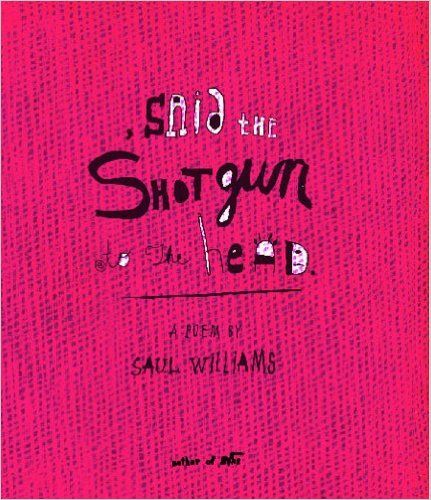
This book testifies to the fact that the most profound and monumental works are not always dusty volumes written by long-deceased authors.
Saul Williams, an American poet, rapper, singer, songwriter, and actor, is alive and well and writing some of the most soul-stirring words I’ve encountered.
Said the Shotgun to the Head consists of a single, long prose poem “in the voice of a man that is telling of the coming of a female messiah that he has known intimately.” The book unfolds a religious narrative, though it does not champion any one religious tradition, referencing Hinduism, Christianity, and the Yoruba religion, among others.
It is a book that dives deep into the mythological wellspring of the human psyche to bring forth a story capable of appealing to anyone on the planet—a story of love, violence, life, and death. A story that your heart deserves to know.
Passages like this one, for example, possess the ineffable quality of making us feel as if we’ve been reminded of something long-forgotten, revealing to us levels of depth and possibility that intrigue, inspire, and vitalize:
“Have you ever lost yourself in a kiss? I mean pure psychedelic inebriation. Not just lustful petting but transcendental metamorphosis when you became aware that the greatness of this being was breathing into you. Licking the sides and corners of your mouth, like sealing a thousand fleshy envelopes filled with the essence of your passionate being and then opened by the same mouth and delivered back to you, over and over again — the first kiss of the rest of your life. A kiss that confirms that the universe is aligned, that the world’s greatest resource is love, and maybe even that God is a woman.”
4. Howl and Other Poems — Allen Ginsberg
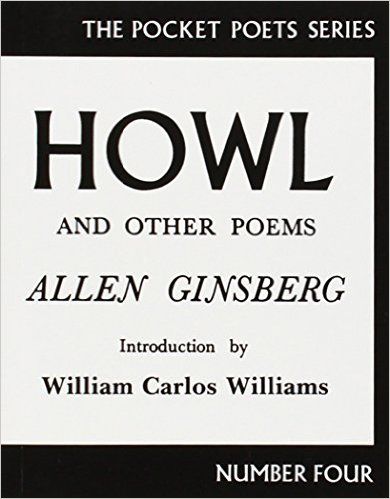
Howl and Other Poems by Allen Ginsberg is a book that is absolutely throbbing with the author’s spiritual rapture and disillusionment with American society.
It contains some of the most potent, jarring language of any book I’ve read and is widely considered one of the great works of American literature.
Part of what makes the book so powerful is the historical context in which it was written. Post-WWII, 1950s America was a place firmly rooted—even more so than today—in the traditional US ideals of Christianity, the nuclear family, sexual prudence, unconscious consumption, work as overriding duty, and the Western notion that scientific and societal progress were manifesting a better world.
But WWII and the Great Depression had acted as a proverbial ice pick, striking that worldview and fracturing it, creating the space and soil in which the American counterculture movement would blossom in the 1960s. But before this psychedelic wave, there was the Beat Generation, a group of writers and artists who became disillusioned with the aforementioned pillars of American society.
The Beats were a major precursor to the hippie movement, and Allen Ginsberg was one of their most extraordinary talents—another human whose pen seemed to move in accordance with a higher wind.
I first encountered Howl and Other Poems while studying at university, and it was passages like the following that deeply engaged me and began to destabilize my limited notions of what life could be:
“Holy! Holy! Holy! Holy! Holy! Holy! Holy! Holy! Holy!
Holy! Holy! Holy! Holy! Holy! Holy!
The world is holy! The soul is holy! The skin is holy!
The nose is holy! The tongue and cock and hand
and asshole holy!
Everything is holy! everybody’s holy! everywhere is
holy! everyday is in eternity! Everyman’s an
angel!
The bum’s as holy as the seraphim! the madman is
holy as you my soul are holy!
The typewriter is holy the poem is holy the voice is
holy the hearers are holy the ecstasy is holy!”

Jordan Bates
Jordan Bates is a lover of God, father, leadership coach, heart healer, writer, artist, and long-time co-creator of HighExistence. — www.jordanbates.life

